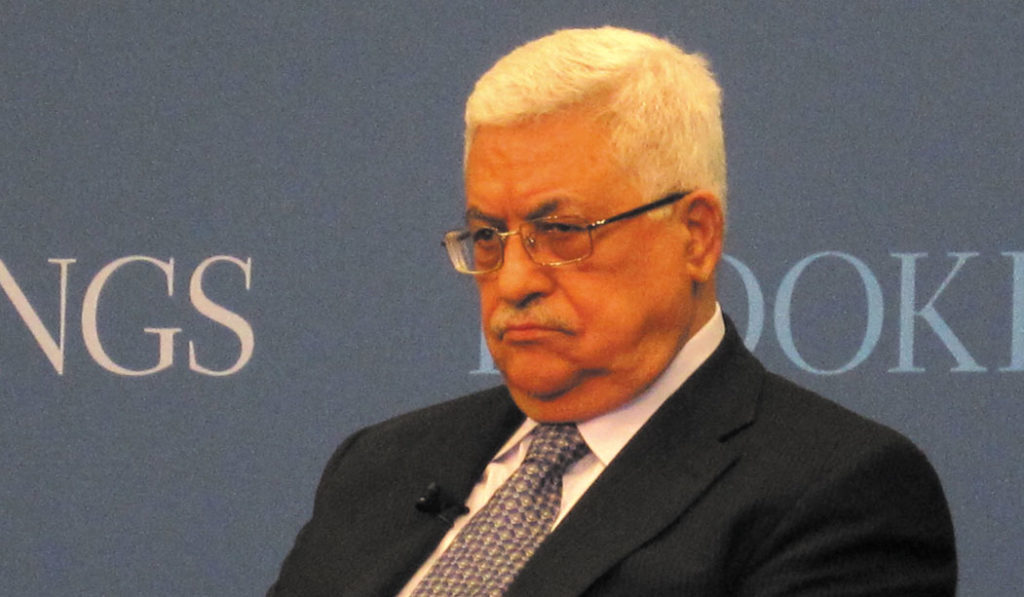Australia/Israel Review
Yaari: Coping Without a Peace Deal
Mar 19, 2014 | Sharyn Mittelman

Sharyn Mittelman
The Palestinian leadership will never agree to a Palestinian state on the 1967 lines and an end to the conflict with Israel unless all of its demands are met, but that does not mean Israel should not take the initiative towards a two-state outcome. That was a core message of renowned Israeli journalist, commentator and author Ehud Yaari who recently visited Australia as a guest of AIJAC.
At a public function on February 23 in Melbourne, Yaari told the audience that the most likely outcome of the current negotiations between Israel and the Palestinians will merely be a “framework for negotiations… not an agreement”, that would extend negotiations for another year, taking them beyond the US mid-term election. Attached to the “framework for negotiations” will be a list of reservations by Palestinian Authority (PA) President Abbas and Prime Minister Binyamin Netanyahu, leading many to view it as meaningless.
This will lead to a blame game that will inevitably fall on Netanyahu. However, in Yaari’s opinion, if negotiations continue to fail over the coming years, Israel should take the initiative and support a “transition agreement” that would implement an internationally-backed coordinated Israeli withdrawal from around 80% of the West Bank. Yaari said he believes Netanyahu would support a withdrawal from around 60% of the West Bank because it would not require dismantling settlements, but the US is not likely to agree to less than 80%.
When asked if a withdrawal from the West Bank would lead to a Hamas takeover, as occurred in Gaza, Yaari was adamant that it would not because such a withdrawal would be coordinated with the PA and internationally supported, unlike in Gaza where Israel acted unilaterally. While there are obvious risks to such a ‘transition’ plan, Yaari said the questions to be asked are, “How do we [Israel] manage best the ongoing situation” and “do you stick with a status quo which I think is untenable?”
Yaari also outlined the challenges Israel faces from the changing geo-political dynamics at play in the Middle East in the aftermath of the ‘Arab Spring’. Yaari believes that many Arab States have become failed states, which has led to the resurgence of al-Qaeda in the region a decade after the beginning of the “War on Terror”. He noted that there are two 800-kilometre stretches in the region where al-Qaeda has a strong presence – from Iraq to Syria in the Middle East, and across Libya, Algeria and Mali in North Africa.
Regarding the Syrian civil war, Yaari said “Syria is being broken into many many pieces with about 1,000 different rebel militias, the biggest of them being the al-Qaeda organisations, numbering together 50,000 people under arms.” Yaari estimates that Assad’s army has control of around 30% of Syrian territory, and as the rebels are unable to defeat what’s left of Assad’s forces, the result is a “bloody stand off.” According to Yaari, Israel’s main concern is that rebel organisations will link up with al-Qaeda and threaten its border and the border of Jordan. He said that while al-Qaeda is mainly in northern Syria, “There is nothing to prevent them from coming down south, close to our border”.
In order to slow down and hopefully prevent the flow of al-Qaeda from northern Syria into southern Syria, Yaari claims that Israel has established good communications with the various rebel groups along the Israeli-Syrian border, who are not linked to al-Qaeda. This cooperation has been used to facilitate humanitarian aid including medicine, blankets, fuel and the evacuation of critical Syrian casualties to Israeli medical facilities. To date, Israel has treated over 700 Syrians in Israeli hospitals and in its field hospital in the Golan Heights. Yaari estimates that the rebels in the south could become a significant force, noting it was recently announced that 49 different militias in the south are unifying under a single command.
Despite the threat from al-Qaeda rebels, Yaari claims that from an Israeli point of view, “we want Assad out.” According to Yaari, “The devil we know is worse than the devil we don’t know… even if it’s al-Qaeda.” Yaari pointed out that it was Assad who tried to develop nuclear weapons, Assad who provides arms to Hezbollah and Assad who is “in bed with Iran.”
While Israel faces many challenges on its borders in the north, Yaari notes that common threats have fostered good cooperation in Israel’s south with both Jordan and Egypt. Regarding Egypt, Yaari said that security cooperation between Israel and Egypt is “unprecedented in scope” due to the common threat of terrorism in the Sinai Peninsula and its links to Hamas in the Gaza Strip.
Yaari claims that Israel and Egypt have unofficially modified their peace treaty to enable Egypt to send its troops into the Sinai Peninsula to deal with the threat of terrorism. He also said that the Egyptian army has made gains in the Sinai, but that Israel awaits two developments – for Egypt to deploy around Eilat on its side of the border to prevent further firing of missiles on Eilat or Aqaba in Jordan, and for Egypt to move against the main safe havens of the terrorists in central Sinai, close to the Israeli border.
Considering the challenges Israel confronts on its border from both the north and south, Yaari provided a reassuring assessment that Israel is not only managing these risks effectively but also acquiring new allies.
Ehud Yaari is Middle East commentator for Israel’s Channel Two television, a Lafer International Fellow with The Washington Institute for Near East Policy and author of eight books on Israeli-Arab issues. He visited Australia in March as a guest of AIJAC.
Tags: Israel






